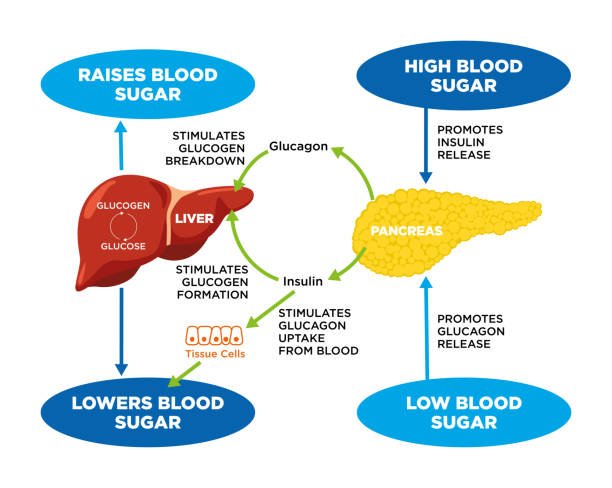
Genetic Inheritance Causes Diabetes? Type 1 Diabetes Causes and Risks
We estimate that more than five million people in the UK are living with diabetes, which is an all-time high. Our data shows that more 4.3 million people in the UK live with diabetes. Additionally, 850,000 people could be living with diabetes who are yet to be diagnosed. Around 8% of people with diabetes have type 1 diabetes. Type 1 diabetes is the most common endocrine disease in children and young adults.
Causes of type 1 diabetes
Type 1 diabetes is caused by an abnormality in the autoimmune system. Antibodies in the body mistakenly attack beta cells in the pancreas, causing the body to be unable to secrete enough insulin (Insulin) to control blood sugar. However, the cause of the abnormality in the immune system is still unknown.
People with type 1 diabetes usually need to be treated with insulin, which is why type 1 insulin was once called “insulin-dependent diabetes.”
Type 1 diabetes may develop in the body over many months or even years before symptoms appear. Researchers have found that most people with type 1 diabetes have certain autoantibodies in their blood for years. These antibodies can also be used as a basis for detection and diagnosis.

Type 1 diabetes risk
The factors causing type 1 diabetes are currently generally believed by the medical community to be caused by the interaction of genetic genes, environment and the autoimmune system.
Autoimmune system
The patient’s autoimmune system is abnormal and attacks the beta cells in the pancreas, causing damage to the beta cells and leading to type 1 diabetes. Immune system abnormalities may be induced by genes and environment. For example, some people do not suffer from type 1 diabetes even though they have the genetic gene for type 1 diabetes. This has led some experts to believe that the environment, or specific substances in it (such as viruses), is one of the key causes of type 1 diabetes, and has nothing to do with diet and lifestyle habits.
Diabetes genetics
How much influence does genetics have on the development of type 1 diabetes? From the perspective of identical twins, they have extremely similar genes. When one twin develops type 1 diabetes before the age of 25, the other twin has a 50% chance of developing type 1 diabetes. However, if one of the twins develops type 1 diabetes, Type 1 diabetes, another person’s risk is about 75%. This shows that even if you have a genetic predisposition for type 1 diabetes, you must have the cooperation of environmental factors to develop the disease. The relationship between genetic predisposition and environmental factors is also a medical something the world has long tried to understand.
The following is the probability of influence of family genes:
- If the father has type 1 diabetes, the chance of developing type 1 diabetes is about 6%.
- If the mother has type 1 diabetes, the chance of developing it is about 2%.
- If a sibling has type 1 diabetes, the chance of developing type 1 diabetes is about 5%.
- From identical twins: 50% chance
- From fraternal twins: 5-6% chance
The prevalence of type 1 diabetes varies around the world. Experts and scholars believe that genes of different races also affect the incidence of type 1 diabetes to some extent. For example, the incidence of type 1 diabetes in China is 10 to 20 times less than that in Europe, Australia, or North America. Finland has the highest prevalence of type 1 diabetes in the world, with an average of 60 people per 100,000 people suffering from type 1 diabetes, almost three times the rate in the United States.
Researchers believe that human leukocyte antigen (HLA) is the key to the huge difference. There are many types of HLA genes, and researchers have found that some ethnic groups have HLAs that protect them from type 1 diabetes, while others have HLA combinations that increase risk.

Envirnmental factor
If a person with the genetic gene for type 1 diabetes encounters an environmental molecule that has a structure similar to the self-antigen on the surface of pancreatic beta cells, causing the immune system to be unable to distinguish it and then attack the beta cells, then this person will develop the disease. However, scientists are still researching and confirming which environmental factors can induce type 1 diabetes genes.
Environmental factors suspected of causing type 1 diabetes include the following:
- Early exposure to Bovine serum albumin (BSA)
- Viruses, such as: Mumps virus, Coxsackie virus, Cytomegalovirus, Rubella virus, etc.












